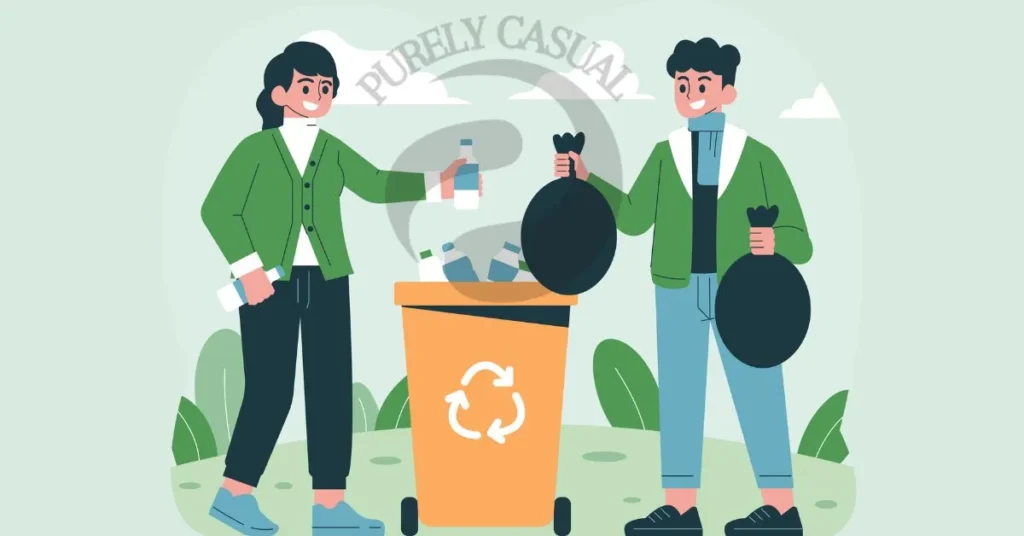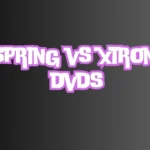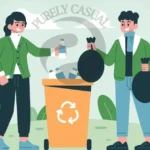Recycling plays a crucial role in preserving our environment and reducing waste. If you’re a resident of Sussex County, New Jersey, and need to know about recycling at the Sussex County Landfill in Lafayette, managed by the Sussex County Municipal Utilities Authority (SCMUA), this guide will provide you with all the information you need, from what’s free to recycle to special services and tips for efficient recycling.
Table Of Contents
Free Recycling for Common Household Items
SCMUA offers free recycling for a broad range of everyday materials, making it easy for residents to participate in waste reduction. Here’s a closer look at what you can drop off at no charge:
- Paper & Cardboard: This includes newspapers, magazines, office paper, junk mail, and various types of cardboard, such as shipping boxes and cereal boxes. Flattening cardboard not only saves space in your vehicle but also makes the recycling process more efficient. Recycling paper products helps conserve trees and reduces the energy needed to produce new paper from raw materials.
- Plastics: Most plastic bottles and containers labeled with recycling codes #1 (PET) and #2 (HDPE) are accepted for free. These include water bottles, milk jugs, detergent containers, and similar items. Rinse out containers to remove food or liquid residue, as contaminants can affect the quality of the recycled material. By recycling plastics, you help reduce the demand for new plastic production, which is energy-intensive and often relies on fossil fuels.
- Glass: Glass bottles and jars (clear, green, or brown) are also recyclable at no cost. This includes beverage bottles, food jars, and similar containers. Glass is 100% recyclable and can be recycled endlessly without losing quality. Recycling glass reduces the need for raw materials like sand, which is a finite resource.
- Metal Cans: Aluminum and steel cans, such as those used for beverages, canned foods, and aerosol products, are accepted for free. Clean and dry these items before recycling. Recycling metal is particularly beneficial as it saves significant amounts of energy—recycling aluminum saves up to 95% of the energy needed to create new aluminum from raw materials.
By providing free recycling for these items, SCMUA makes it convenient for residents to participate in recycling efforts, which directly contributes to environmental sustainability by reducing landfill waste.
Here’s a table summarizing the key aspects and facts for recycling at the Sussex County Landfill managed by the SCMUA.
| Aspect | Details |
|---|---|
| Free Recycling Items | Paper, cardboard, plastics (#1 PET and #2 HDPE), glass bottles and jars, and metal cans are accepted at no cost. |
| Preparation Tips | Flatten cardboard, rinse containers, and ensure items are clean and dry to prevent contamination and optimize recycling efficiency. |
| Items with Fees | Electronics (TVs, computers), large appliances (refrigerators, washers), tires, batteries, and construction debris may incur fees due to special handling and processing requirements. |
| Special Events | SCMUA hosts events for household hazardous waste (HHW), electronic waste recycling, and shredding. These events may offer free or discounted fees for disposal. |
| Household Hazardous Waste (HHW) | Accepted twice yearly, including paints, varnishes, solvents, and pesticides. These substances are disposed of safely to prevent environmental contamination. |
| Electronics Recycling | Regular drop-off services available; special events might allow free or reduced-fee disposal. |
| Shredding Events | Offered for secure disposal of sensitive documents. Shredded paper is recycled. |
| Composting Services | SCMUA supports composting through resources, education, and sometimes compost bin sales, aiming to reduce organic waste and enrich soil. |
| Recycling Education and Outreach | Workshops, school programs, and informational campaigns aim to increase awareness about recycling best practices and reduce contamination. |
| Sorting | Sort items by material (e.g., paper, plastic, glass) before arrival to save time and streamline the drop-off process. |
| Non-Accepted Items | Items like plastic bags, Styrofoam, and certain plastics (codes #3–#7) may not be accepted. Check SCMUA guidelines for clarity. |
| Contamination Prevention | Ensure all recyclables are free of food and liquid residue; contaminated items may be sent to the landfill instead of being recycled. |
| Additional Services | SCMUA offers tips on reducing waste, including reusing items, donating, and composting before opting for recycling. |
| Operating Hours | Recycling drop-off is only available during designated hours; check SCMUA’s website for current hours and schedules for special events. |
| Contact Information | Visit SCMUA’s website or contact customer service for updates on recycling guidelines, fees, and questions about specific items. |
This table gives a quick overview of key points to help residents understand SCMUA’s recycling services, procedures, and events.
Materials That May Incur a Fee
Certain items require special handling or processing, which means they might come with a fee. Here’s an expanded look at what might cost you:
- Electronics: Items like televisions, computers, laptops, tablets, printers, and other electronic devices often contain hazardous materials such as lead, mercury, and cadmium. These substances require careful handling to prevent environmental contamination. Fees for recycling electronics help cover the costs of safely dismantling these items, removing hazardous components, and recycling valuable materials like metals and plastics. SCMUA might offer discounts or even free recycling during special e-waste collection events.
- Large Appliances: Appliances such as refrigerators, air conditioners, washing machines, and dryers often contain refrigerants, oils, and other substances that need to be removed before the appliance can be safely recycled. The fees associated with these items cover the costs of safely extracting these substances, which are regulated by environmental laws. Additionally, many of these appliances contain metals and other materials that can be recycled once hazardous components are removed.
- Tires: Disposing of car, truck, or bicycle tires usually involves a fee because tires are not biodegradable and can create environmental hazards if not handled properly. The recycling process for tires typically involves shredding them into small pieces that can be used in products like rubber mulch, playground surfaces, and even asphalt for roads. Fees help support these specialized recycling processes.
- Batteries: Larger batteries, such as car batteries or rechargeable batteries from power tools, often contain lead, acid, or other toxic substances. These materials require careful handling to prevent leaks or contamination. SCMUA may charge a fee for recycling these items, though smaller household batteries (AA, AAA, etc.) might be accepted for free during specific events. Proper recycling prevents hazardous materials from entering the environment and allows for the recovery of valuable metals.
- Construction Debris: Items like concrete, bricks, wood, and other construction materials are often classified as “bulky waste” rather than regular recyclables. These materials may be subject to special disposal fees, especially if they require additional processing. Some of these materials can be recycled into new building materials or used in other construction applications, but this depends on the type and condition of the debris.
Understanding these fees in advance can help you budget for larger disposal projects and ensure that you’re disposing of items responsibly.
Special Recycling Programs and Services
SCMUA offers a range of programs designed to help residents recycle more efficiently and safely. Here’s a closer look at what’s available:
- Household Hazardous Waste Collection: Twice a year, SCMUA organizes events specifically for the safe disposal of household hazardous waste (HHW). This includes items like paints, varnishes, solvents, pesticides, and other chemicals. These substances can be harmful to the environment and human health if not disposed of properly. During these events, residents can drop off HHW for safe disposal, often at no cost. SCMUA works with certified hazardous waste handlers to ensure that these materials are treated, stored, and disposed of in compliance with environmental regulations.
- Electronic Waste Recycling Events: In addition to regular e-waste recycling services, SCMUA hosts special events where residents can drop off electronic items, sometimes for free or at a reduced rate. These events are particularly useful for getting rid of old or obsolete electronics that might be taking up space in your home. The collected electronics are typically dismantled, with valuable components like metals, plastics, and circuit boards being recycled, while hazardous materials are safely managed.
- Shred Days: Identity theft is a growing concern, and one way to protect yourself is by securely disposing of sensitive documents. SCMUA offers Shred Days where residents can bring personal documents to be shredded on-site. These shredded materials are then recycled, ensuring that your information is secure and that the paper is reused rather than wasted. This service is often offered for free or for a nominal fee.
- Composting Services: SCMUA promotes composting as an effective way to reduce organic waste. They provide resources, education, and sometimes even sell compost bins to help residents start composting at home. Composting not only reduces the amount of waste sent to the landfill but also produces valuable compost that can enrich garden soil. SCMUA may also have community composting programs where residents can drop off organic waste for composting.
- Recycling Education and Outreach: SCMUA frequently engages in community outreach to educate residents about recycling. This includes workshops, school programs, and informational campaigns aimed at increasing awareness of what can be recycled and how to do it correctly. By educating the public, SCMUA helps improve recycling rates and reduces contamination in the recycling stream.
These programs and services are designed to help residents manage waste more effectively and contribute to a cleaner, safer environment.
Tips for Efficient Recycling
To get the most out of SCMUA’s recycling services, consider the following tips:
- Sort Before You Go: Properly sorting your recyclables by material type—paper, plastics, glass, and metal—before heading to the landfill can save you time and make the drop-off process smoother. Many recycling centers have designated bins or areas for each type of material, so being organized will help you quickly and efficiently place items where they belong.
- Know What’s Accepted: Not all materials are recyclable, and some items that appear to be recyclable may not be accepted at SCMUA. For example, plastic bags, Styrofoam, and certain types of plastics (like those labeled #3, #4, #5, #6, or #7) may not be recyclable in your area. Check SCMUA’s guidelines to avoid bringing items that won’t be accepted. This helps prevent contamination of recyclable materials, which can lead to more items being sent to the landfill.
- Clean and Dry: All recyclables should be clean and free of food or liquid residue. Dirty or wet items can contaminate other recyclables, reducing the overall quality and making the recycling process more difficult. Contaminated loads may even be rejected and sent to the landfill. Take a few extra moments to rinse and dry items before placing them in your recycling bin.
- Flatten and Compact: Flatten cardboard boxes and crush cans to save space. This not only makes it easier to transport your recyclables but also helps SCMUA manage the volume of materials more efficiently. Flattening and compacting items also reduces the risk of clogging machinery at the recycling facility.
- Plan for Special Items: If you have electronics, hazardous waste, or other items that may incur fees, plan to visit SCMUA during their special collection events. These events often offer reduced fees or free disposal, making it easier and more affordable to recycle these materials. Planning ahead ensures that you’re recycling responsibly and taking advantage of cost-saving opportunities.
- Reduce and Reuse Before Recycling: While recycling is important, reducing your waste and reusing items can have an even greater impact. Consider using reusable bags, containers, and water bottles to reduce the amount of single-use items you need to recycle. Donate or repurpose items that are still in good condition before recycling or disposing of them.
Following these tips will help you make the most of SCMUA’s recycling services and contribute to a more sustainable community.
Conclusion
Recycling at the Sussex County Landfill in Lafayette is designed to be easy, with many materials accepted for free and special programs for items requiring extra care. Utilizing SCMUA’s services helps reduce waste, conserve resources, and protect the environment. Understanding what can be recycled, what may incur fees, and participating in special events ensures effective waste disposal. Your recycling efforts contribute to a cleaner, more sustainable Sussex County. By working together and using SCMUA’s resources, we support a healthier environment for future generations. Embrace recycling to foster responsible waste management and build a better future for all.
FAQs
What materials are accepted for free at SCMUA?
SCMUA accepts paper, cardboard, plastics (with recycling codes #1 and #2), glass bottles and jars, and metal cans for free. Ensure that these items are clean and properly sorted.
Are there any items that require a fee to recycle?
Yes, items such as electronics, large appliances, tires, batteries, and construction debris may incur fees. The fees cover the costs of special handling and processing required for these materials.
When does SCMUA hold special recycling events?
SCMUA hosts events for household hazardous waste, electronic waste, and shredding on specific dates throughout the year. Check their website or contact their office for the schedule of these events.
How can I find out about the latest recycling guidelines and fees?
Visit the SCMUA website for the most current information on recycling guidelines, accepted materials, fees, and special events. You can also contact their customer service for specific questions.
What should I do if I’m unsure whether an item is recyclable?
Check SCMUA’s recycling guidelines or contact their customer service for clarification. They can provide information on whether an item can be recycled and how to properly dispose of it if it cannot.
Can I drop off recyclables at any time?
SCMUA has designated hours for recycling drop-off. Check their website or contact them to find out the specific hours of operation for recycling services.
How does SCMUA handle contaminated recyclables?
Contaminated recyclables may be rejected and sent to the landfill. It’s important to clean and sort materials properly to avoid contamination and ensure that recyclables are processed effectively.







